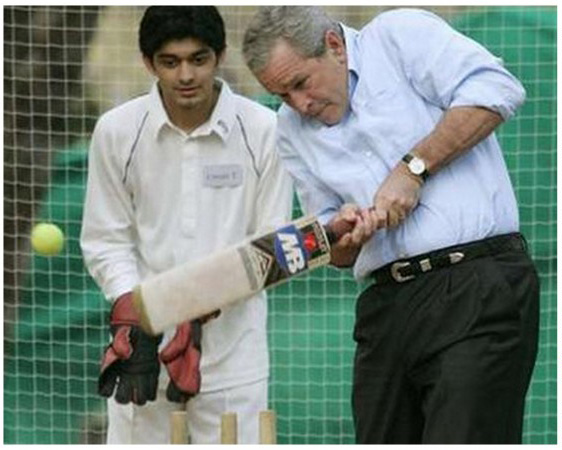|
 In any American city, ask someone on the street what they think of cricket, and you will likely get a quizzical look. Cricket, the insect or Cricket, the cellular carrier, they might ask. In Florida, California, Texas, New York and Pennsylvania a cricket fan can attend a game and an amateur player can find a game to play in (usually, with some asking around). Today the US has a dozen or so cricket grounds (although only one certified by ICC) and has hosted a few international cricket matches in cities with large immigrant communities from the traditional cricket playing countries. Today’s cricket fans in the US are mostly immigrants from traditional cricket countries, but as their children grow up as Americans, they ask themselves what will become of their beloved sport in the next generation. In any American city, ask someone on the street what they think of cricket, and you will likely get a quizzical look. Cricket, the insect or Cricket, the cellular carrier, they might ask. In Florida, California, Texas, New York and Pennsylvania a cricket fan can attend a game and an amateur player can find a game to play in (usually, with some asking around). Today the US has a dozen or so cricket grounds (although only one certified by ICC) and has hosted a few international cricket matches in cities with large immigrant communities from the traditional cricket playing countries. Today’s cricket fans in the US are mostly immigrants from traditional cricket countries, but as their children grow up as Americans, they ask themselves what will become of their beloved sport in the next generation.
There are changes occurring in cricket worldwide. These changes are likely to lead to the growth of the sport in the United States. The global shift in popularity from the classic five day test match to the fast paced T20 has a clear appeal to Americans. With the rise of the Internet and the concept of instant gratification, many people no longer have the patience for a five day game. In the United States in particular, at our pace of work and business, we don’t have the time for it, either. Yet an evening or weekend T20 match is something we should be able to fit into our hectic schedule and will move fast enough to keep our sleep-deprived attention. Television dollars are also much better suited to the T20 format. Itis more attractive to US audiences who are used to faster and shorter games like football and hockey, or even baseball. Americans like it fast.
Americans like things big, too. This is good news for T20 cricket, where the rules are designed to create bigger scores. It is much more of a batter’s game and not so much of a bowler’s game, like the classic test cricket. Americans are used to big scores, like in football, where a touchdown can garner as many as 8 points. Thus, the surge in T20 popularity internationally is positioned to attract new fans the game in the United States.
A second development is taking place on the global level relating to the organization of matches. For many years, professional cricket was played on a national level – country versus country. However, the last decade has seen a dramatic upsurge in league and tournament style play by multinational teams, as seen in the Indian Premier League and Caribbean Premier League. This has led to a shift in power toward the ICC and away from the national cricket boards. Coupled with the increase of money paid to professional players, it has led to a breakdown of nation-based allegiances and the rise of free agent style elite players. The ICC has been leading the way into developing cricket countries like the United States, Ireland, and other so-called minnows. By having multinational teams, minnow countries, like the US, can develop and establish players on an individual basis, as opposed to a team basis. It allows more countries to join the cricket community, and allows tours by popular players in all countries, as opposed to having fans travel to cricket playing countries to see the stars in action. The rise of Premier Leagues could play an important role in the United States, allowing cricket to move away from the nation’s beleaguered cricket board.
League and tournament play is also well suited to the diversity of American cricket fans. A greater choice in formats and a swing away from nationalism is likely to increase participation and overcome cronyism. The global changes in cricket can significantly benefit the sport in the United States, if US cricket fans take heed. They must embrace diversity and place the love of the game above politics and personal gain. They must choose openness and good organization over in-fighting and litigation. The global environment will allow for the growth of American cricket.
By Edward Boreth
|